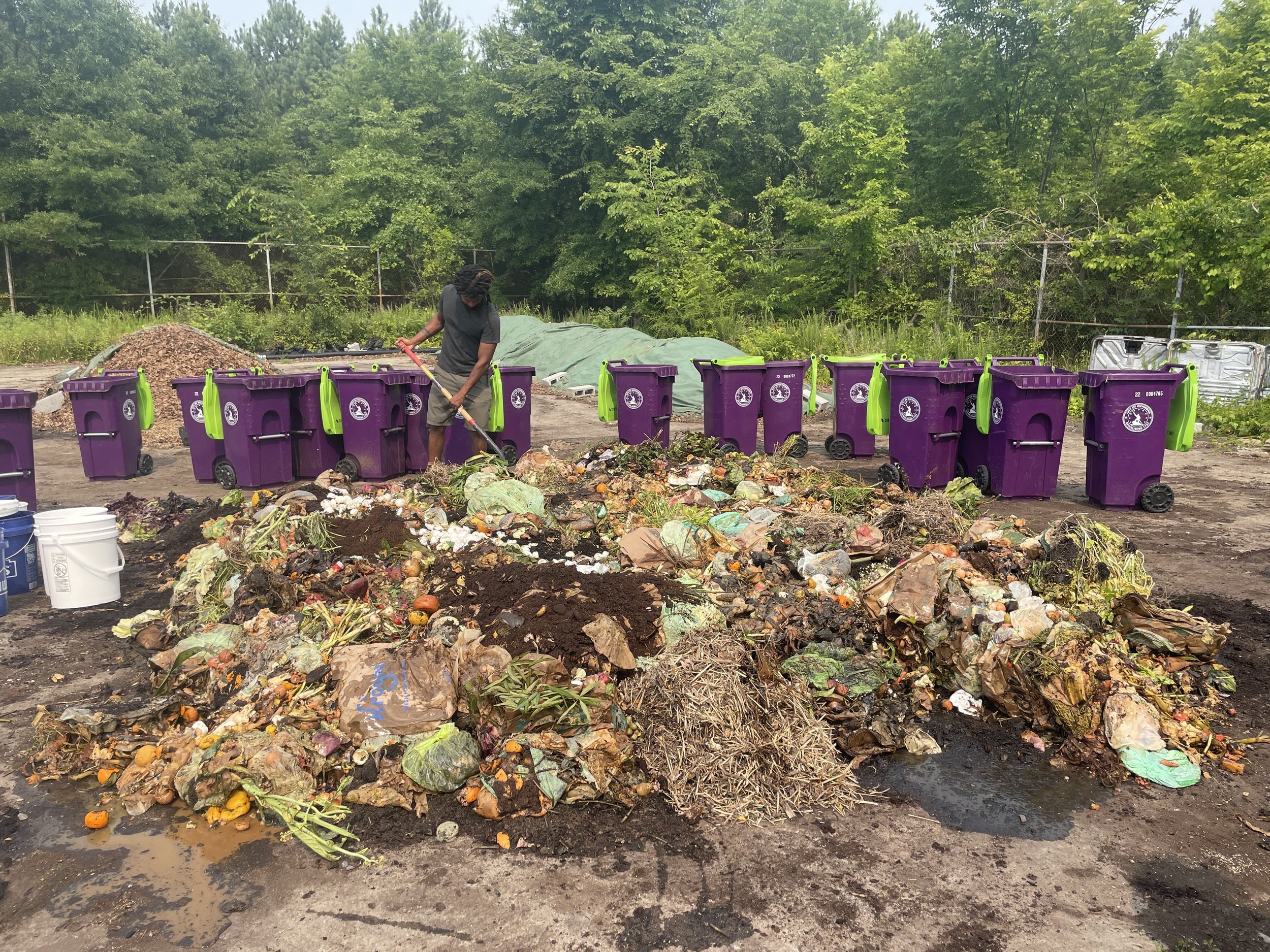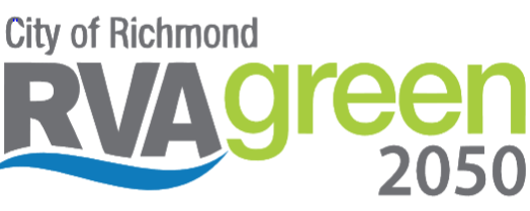
Waste Reduction and Recovery
With Richmond's landfill projected to reach capacity in just 25 years, reducing our waste is crucial to extend its lifespan and protect our local environment. By embracing waste reduction, we can conserve valuable resources, minimize pollution, and create a more sustainable future for Richmond.
Where to Start
-
The easiest ways to reduce landfill waste are to cut down on single-use items and recycle correctly. Start by using the City of Richmond Recycling Guide and pickup instructions to understand what and how to recycle locally. Beyond recycling, make simple swaps like bringing your own reusable bags for shopping and choosing reusable water bottles over disposable ones. Reducing what you use in the first place is a powerful step towards a less wasteful lifestyle.
-
Taking your commitment to waste reduction a step further involves embracing repair over replacement. Before purchasing something new, consider whether your old or broken item can be fixed. This not only saves you money but also significantly lowers your personal waste footprint by keeping valuable resources out of landfills. A fantastic resource for this is the Repair Cafe, a free or low-cost pop-up event where skilled volunteers offer guidance, tools, and tips for repairing your belongings. Attending a Repair Cafe can empower you with practical skills and connect you with a community focused on sustainability.
-
Taking waste reduction to an expert level often involves implementing practices like composting, a fantastic way to divert a significant portion of household waste from landfills. By transforming food scraps, yard waste, and even some paper products, you can create nutrient-rich compost, a valuable resource for your garden or indoor plants. For those unable to compost at home, the City of Richmond offers multiple convenient drop-off locations where you can 'donate' your organic waste to support local parks and green spaces, ensuring these valuable materials are still utilized beneficially.
A tour of the Richmond Compost Pilot facility.
Build your Toolbox
-
Mindful Purchasing: The "Pause and Ponder" Habit
Before buying anything (except essential groceries or medications), institute a 24-hour (or even a 1-hour) "pause and ponder" rule. During this time, actively think about why you want the item, whether you truly need it, if you have something similar already, or if you could borrow it. "Where will this end up in a year?"
Avoiding Single-Use Items: The "Grab Your Reusables" Routine
Create a "go-to" bag with your reusable shopping bags, water bottle, coffee cup, and cutlery. Keep it in your car, by the door, or in your regular bag so it's always accessible. Make it a habit to grab it before leaving the house. Practice politely declining single-use items when offered (e.g., "No straw, please," "I have my own bag, thank you").
Choosing Products with Minimal Packaging: The "Look and Compare" Strategy
When shopping, actively look for products with the least amount of packaging or packaging that is clearly recyclable or compostable in Richmond. Compare different brands and opt for the more minimally packaged option.
Support Local: Shop at farmers' markets or local stores where products are often sold with less packaging. Bring your own containers when possible.
Borrowing and Renting: The "Community Connection" Approach
Before buying something you'll only use occasionally, think about whether you can borrow it from a neighbor, friend, or family member. Explore local tool libraries or rental services for items like power tools or party supplies. Additionally get to know your neighbors – sharing resources can strengthen community bonds and reduce individual consumption.
Digital Alternatives: The "Go Paperless" Challenge
Make a conscious effort to switch to digital alternatives for bills, newspapers, and communication. Unsubscribe from unwanted paper mail. Utilize note-taking apps and e-readers.
Reducing Food Waste: The "Plan, Store, Use" Method
Create a weekly meal plan before grocery shopping and make a detailed shopping list to avoid impulse buys and food spoilage. Learn proper food storage techniques to extend the life of your groceries. Make it a habit to check your fridge and pantry before shopping and prioritize using leftovers. Get creative with repurposing ingredients.
-
Reuse and Repair Resources
Repair Cafes are free volunteer-run events where individuals can bring broken items (like electronics, clothing, furniture, and more) to be repaired with the help of skilled volunteers. It's a great way to learn repair skills and keep items out of the landfill.
This nonprofit organization collects donated reusable art, craft, and office supplies, diverting them from the waste stream. Their Creative Reuse Center offers affordable materials for creative projects, encouraging reuse and environmentally sustainable practices. They accept donations of various materials.
While primarily serving non-profit organizations and volunteers, the Richmond ToolBank provides tools and equipment for community-based projects, which can include repair and revitalization efforts. They also offer ToolBOX workshops focused on homecare and DIY repair skills. They also accept specific tool donations.
Offers clothing repair and mending services, focusing on visible and invisible mending techniques to keep textiles in use and out of landfills. They also offer sewing lessons to empower individuals to mend their own clothes.
Tech For Troops (T4T), a Richmond, Virginia-based nonprofit, seeks support from individuals and organizations in the form of used electronics donations. These donations are crucial for refurbishing laptops, which not only reduces electronic waste but also provides under-resourced Veterans and their families with essential digital tools and training, equipping them with valuable job skills for a successful transition to civilian life. T4T guarantees secure and sustainable handling of all technology through certified data destruction and responsible recycling.
KVB focuses on litter prevention but also promotes sustainable practices, including offering resources like Sustainability Sampler Kits that provide alternatives to single-use plastics, encouraging a form of reuse by choosing durable options.
Provides professional furniture repair, refinishing, and upholstery services, helping to restore and extend the life of damaged or worn furniture.
Local Donation Centers (for items that may be repaired or reused)
Donating items in good condition to local charities allows them to be reused by others, extending their lifespan and reducing waste. Many of these organizations may also undertake minor repairs on donated items. Examples include:
Habitat for Humanity ReStore (Accepts building materials, furniture, and appliances)
The Clothes Rack (Operated by the Junior League of Richmond, accepts clothing and household items)
-
How to Recycle - Guidelines for Richmond Residents
Capital Region Waste Management Authority (CVWMA)
Recycling guidelines can vary depending on your location and the recycling facility used. For residents of Richmond, the most accurate and up-to-date information on what is accepted in your curbside recycling bin comes from the (CVWMA), which partners with the City.
Recycling Information and Services
City of Richmond - Department of Public Works
While primarily responsible for trash collection, the Department of Public Works is involved in waste management efforts and can provide information regarding recycling services in partnership with CVWMA. They also manage convenience centers that accept certain waste and recyclable materials.
RVA H20: How to Properly Dispose of Hazardous Waste
RVA H2O guides residents on the proper disposal of household hazardous waste, preventing these harmful materials from entering the regular waste or recycling streams and protecting the environment.
City of Richmond - DPW: Clean City Commission
This commission is a volunteer advisory body that organizes community clean-up efforts, promoting a cleaner environment and indirectly supporting waste reduction and proper disposal practices in the city.
Virginia Department of Environmental Quality (DEQ) - Statewide Recycling Programs
The DEQ provides an overview of recycling efforts and resources at the state level, offering broader context and links to local programs and information on recycling various materials.
Virginia Recycling Association
The VRA provides news, resources, and information related to recycling in Virginia, including policies and links to local recycling offices.
-
Educational Resources
US Environmental Protection Agency (EPA) - How To Compost
The EPA explains what composting is, its benefits, how to compost at home, and details different methods such as backyard composting and vermicomposting (worm composting).
Virginia Cooperative Extension (VCE) - How To Use
Provides research-based information and resources on various topics, including composting. Their publications offer guides on how to compost at home, the benefits of composting, how to use compost, and what materials can be composted.
Virginia Department of Environmental Quality (DEQ) - Regulations
Offers information on composting regulations and resources in Virginia. While more focused on a broader scale, it provides context and links to relevant state-level information.
Compost Drop-off Locations
A community composting pilot program by the City of Richmond Department of Parks, Recreation and Community Facilities. It provides convenient drop-off locations, scattered around the city, for food waste to be turned into high-quality compost to be used in city parks.
Compost Collection Services
Offers a food and lawn scrap collection service for residents and businesses, focusing on diverting waste from landfills. Subscribers may receive finished compost annually.
Provides food scrap collection and composting services in Virginia, including partnership with institutions like the University of Richmond.
Offers residential and commercial food scrap collection services, as well as a drop-off service. They also contribute compost to local community gardens.
-
Learning How to Choose Durable and Sustainable Products
Avoid Greenwashing and pick Sustainable Products:
How to identify sustainable products and what to look for in materials, production processes, packaging, that help identify a product's end-of-life while understanding certifications and avoid "greenwashing."
Understanding the Circular Economy:
Learning about the circular economy helps you understand the importance of products being designed for longevity, reuse, repair, and recycling. This perspective can influence your purchasing decisions by encouraging you to support businesses that keep products and materials in use.
Considering the Lifespan of Products:
Choosing durable goods means opting for items built to last, reducing the need for frequent replacements. Look for products made with quality materials and solid construction. Researching product reviews and warranties can also provide insight into durability.
Finding Durable and Sustainable Options Locally
Businesses Offering Repair Services:
Supporting businesses that offer repair services for the products they sell (or for products in general) encourages a longer lifespan for items. Before buying, consider if the retailer or a local repair shop can fix the item if it breaks.
Thrift Stores and Secondhand Shops:
Purchasing items secondhand is a direct way to reuse and extend the life of products. Richmond has numerous thrift stores and consignment shops where you can find clothing, furniture, household goods, and more. This reduces the demand for new production.
Creative Reuse Centers:
Organizations like SCRAP Creative Reuse offer salvaged materials for creative projects, diverting waste and providing resources for making and repairing items yourself.
Businesses with Sustainability Certifications:
Some businesses in Richmond, even if not exclusively selling durable goods, may have certifications (like Virginia Green) that indicate a commitment to environmentally friendly practices in their operations. While this doesn't guarantee the durability of their products, it reflects a broader sustainability focus.
Local Makers and Artisans:
Purchasing from local makers and artisans can sometimes mean acquiring products that are handmade with a focus on quality and durability. You also have the opportunity to ask about their materials and production processes.
Residential Recycling program. Source
Sustainability Guide Resources









